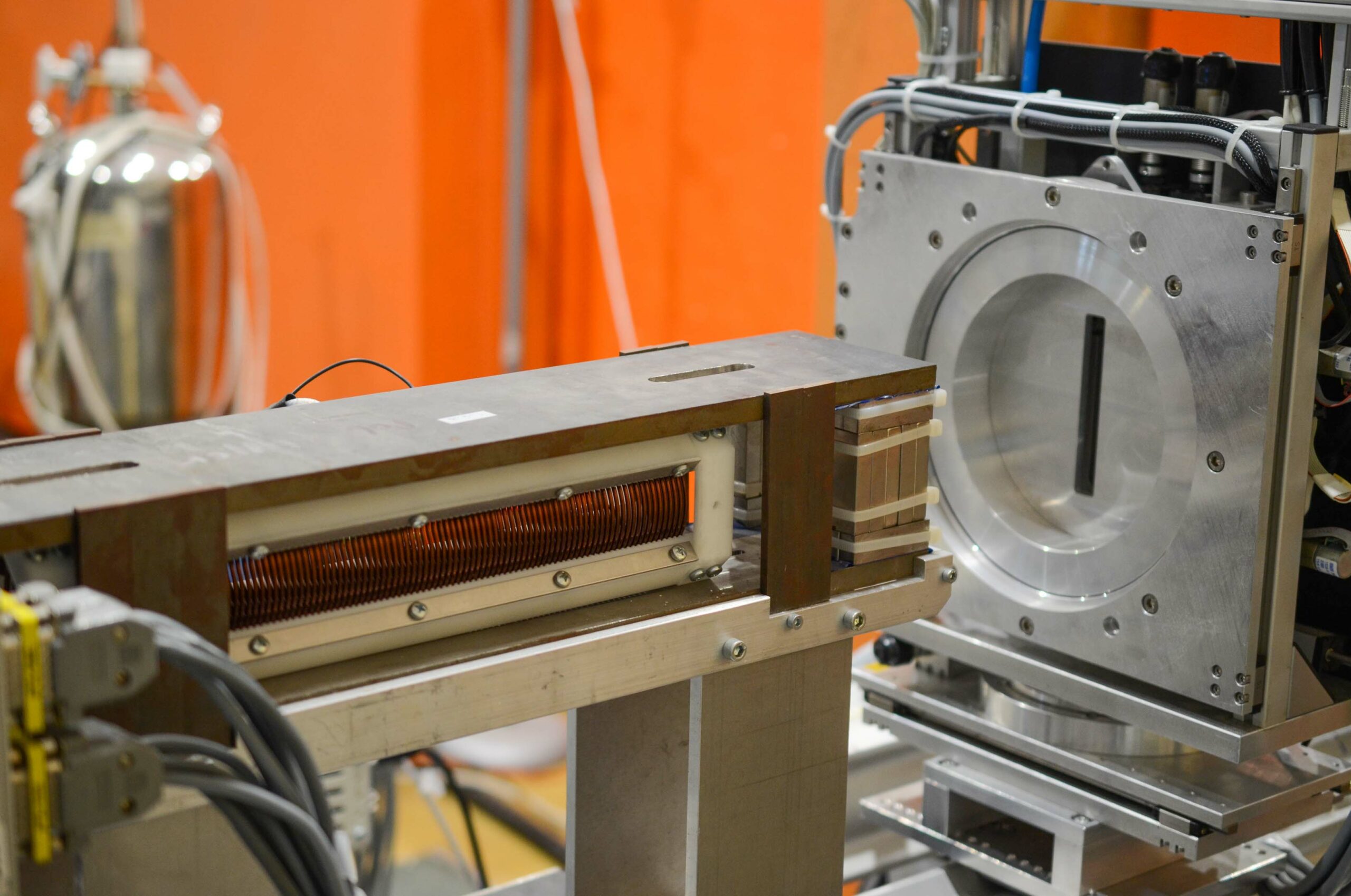- Name: TOF-ND General Purpose Time-of-flight Neutron Diffractometer
- Technique: time-of-flight neutron diffraction
- Range of investigated features: d=0.7-3.5 Å
- Penetration depth: mm’s – cm’s
- Typical size of the sample: 1-10 cm or parts of larger objects
- Measurable materials: solids (powder or bulk) and liquids
- Contact: tof@bnc.hu

TOF-ND is a general-purpose high-resolution time-of-flight powder diffractometer. It covers the d-spacing range from 0.5 to 3.5Å (Q-range of 2 to 12.5 Å-1) at variable band-width and resolution (Δd=0.002 to 0.15Å). TOF-ND can be applied for structure determination and refinement, for peak profile analysis, for phase and texture analysis of crystalline matarials and for diffraction in liquids as well.
The instrument is installed on a radial thermal neutron beam and is placed in a separate measuring hall. The monochromator system consists of a fast double and two single choppers and a straight neutron guide with 2.5×10 cm2 cross section at the end. The double chopper is designed for a maximum speed of 12000 rpm. On the one hand, in high resolution mode the very short – 10µs – neutron pulse and the 25m total flight path allows for obtaining a diffractogram with an accuracy of 1.5×10-3Å (in back scattering mode) in a single measurement on polycrystalline materials, on the other hand, in low resolution mode liquid diffraction can be performed with a good neutron intensity up to a scattering vector of 12.5Å-1. Fast neutrons are filtered out from the beam by a single crystal silicon block. The double disk chopper (Ch1 and Ch2) has two windows: a 1.5° opening for short pulses (10 μs) and a 15° opening for long, variable pulses (20–200 μs). The choppers can be operated in parallel or counter-rotating mode. The latter option is used to produce very short pulses at high speed. To minimize the opening time, the neutron beam is reduced from 25 to 10 mm by using a 4.5m compressor neutron guide section upstream and an identical decompressor guide downstream the position of the pulse choppers (see Figure 1). Ch3 limits the crosstalk between different pulses and Ch4 prevents frame overlap.
The instrument has recently been equipped with a large-surface back-scattering detector bank consisting of 88 pieces of squashed 3He tubes (Figure 3). The detector bank covers 20° of scattering angle (2θ = 145°-165°). Data are acquired in the so called “list” or “time stamping” mode: all events on the detector, the chopper signals and – optionally – changes in the sample environment are registered together with the time elapsed since the start time of the experiment. List mode data acquisition eliminates uncertainties during data treatment and re-treatments and allows us to perform time-dependent in-situ experiments in a single run.
| Total flight path from chopper 1 | L=25m |
| Wavelength range | 0.08-0.5 nm |
| Bandwidth in single experiment Δλ | from 0.4 nm to 0.08 nm (200 Hz) |
| Resolution Δd/d | 1.5×10-3 |
| Straight neutron guide cross section | 25×100 mm2 |
| Coating | supermirror NiTi, m=2 |
| Beam flux at opened windows | 4×107 neutron/s/cm2 |
| Pulse length | 10-1000 µs |
| Max. speed for the double chopper | 12000 rpm |